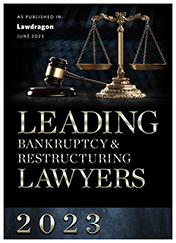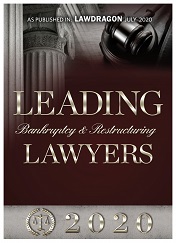Reconsideration of Claims
The Federal Rules of Bankruptcy Procedure provide that a party in interest may move for reconsideration of an order allowing or disallowing a claim against the estate and that the court after a hearing on notice should enter an appropriate order. The reconsideration of a claim cannot upset proper distributions already made to holders of other allowed claims. Reconsideration that results in a higher allowed claim has the effect of suspending distributions to other similar claims until the reconsidered claim catches up. If distribution is made under a plan, reconsideration that allows a higher claim may have little if any effect.
Time Restraints
A contested order allowing or disallowing a claim against the estate is subject to the Federal Rules of Civil Procedure one-year statute of limitation. However, a motion for the reconsideration of an order allowing or disallowing a claim against the estate entered without a contest is not subject to the one-year limitation.
Reconsideration of Claim within Court's Discretion
It is within the discretion of the court to reconsider a claim that has been previously allowed or disallowed. The court may abstain from reconsidering an order of allowance or disallowance without notice to any adverse party and without affording a hearing to the party seeking reconsideration. Notice and hearing, however, must be afforded to parties in interest when a motion to reconsider is granted, before the court can vacate or modify the order of allowance or disallowance.
Request for Reconsideration
Generally, claimants make requests for reconsideration of a disallowance, while trustees typically exercise the right to seek reconsideration of an allowed claim when there is a trustee that has qualified and is satisfactorily performing the duties of that office. The failure of a creditor to respond to a timely application for reconsideration of an allowed claim does not constitute an admission but it may be deemed a consent to a reconsideration.
Entry of Appropriate Order
In response to a timely request for reconsideration of orders allowing or disallowing claims against the estate, a court must enter an appropriate order according to the equities of the case, after weighing the extent and reasonableness of any delay, prejudice to the debtor and other creditors, effect on efficient administration, and the moving creditor's good faith. The grounds alleged for reconsideration need not necessarily be sufficient to require disallowance of the claim. The exact nature of an alleged error should be set forth. If new evidence has been discovered, an explanation as to why such evidence was not discovered earlier is required. When a court declines to reconsider a claim, the proper standard for review of such a decision is abuse of discretion.
Copyright 2012 LexisNexis, a division of Reed Elsevier Inc.






